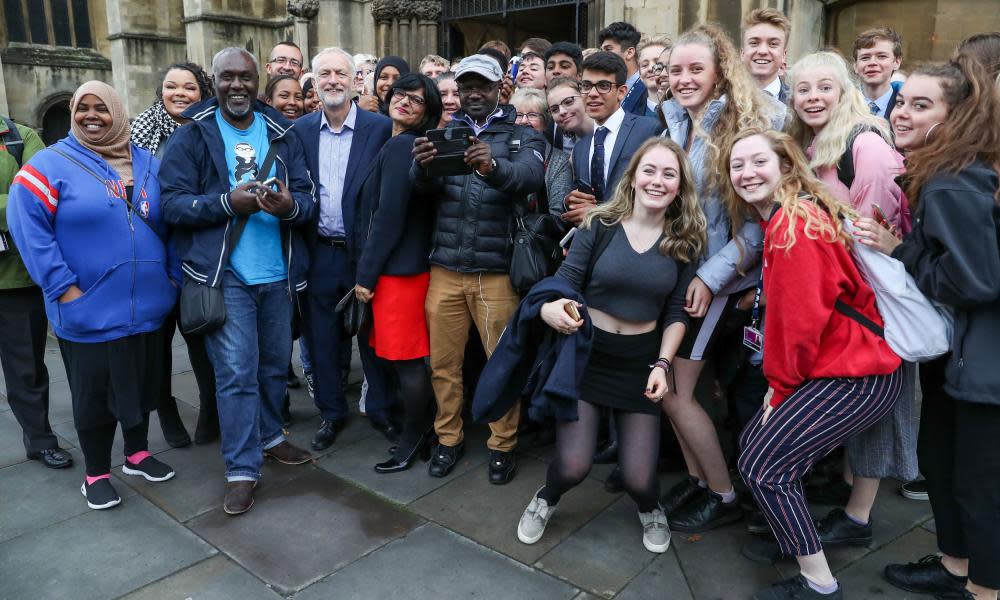Corbyn’s right. It’s not as simple as having ‘pride’ or ‘shame’ in our history

At the root of so much that is poisonous in British politics and society lies a simple, common theme. Behind racism and xenophobia, the resurgence of the far right, the Windrush scandal, and the nationalistic chauvinism of Conservative Brexiteers, we find an imagined distinction between a superior “us” and an inferior “them”. “Our” rights and interests must be asserted over, or defended against, some problematic outsider, be they an “illegal” immigrant, a refugee, a Muslim, or some Brussels Eurocrat seeking to constrain the true greatness of Britain.
In a new policy announcement Labour has offered the highly promising beginnings of an intelligent and substantive response to these deep-seated problems. On a visit to Bristol Jeremy Corbyn announced that a Labour government will establish an Emancipation Educational Trust to help schools teach the history and legacy of slavery and colonialism. The trust would deliver teaching and organise field trips, covering these matters and also the full richness of pre-colonial African history. All this could potentially be reflected in the national curriculum.
‘Black history is British history' explicitly breaks down one of those us-and-them dividing lines
If implemented and expanded further, these sorts of measures could have a far-reaching impact on how we perceive ourselves, both collectively, as a nation, and as individuals in relation to each other within that society.
Corbyn’s statement that “black history is British history” explicitly breaks down one of those us-and-them dividing lines. By stressing the role that colonised and enslaved peoples played in Britain’s emergence as a powerful and prosperous nation, he is expanding the definition of “us” to one that properly matches historical reality. And what better place for him to do that than Bristol, which owes so much to its place in the Atlantic slave trade?
Indeed, an accurate survey of British imperial history could bring a great many peoples out of the “them” and into the “us”. Britain’s is not an island story, but that of a nation state which headed a formal, global empire for two and a half centuries of its 300-year history.
The peoples of those colonised lands cannot credibly be excluded from “us”, especially when, as Corbyn notes, after moving to Britain many of them played an active role in fighting for civil rights and liberties, thus changing our country for the better. Encouraging an understanding of the collective story we share with those peoples – and their own valuable histories prior to their encounters with the British – can help turn ours into an open, pluralistic society, more at ease with itself and respectful of the wider world.
Additionally, by urging us to dwell, as a nation, on the concrete legacies of the British empire’s crimes, Corbyn raises the possibility that we can move beyond facile questions of “pride” and “shame” in our country and its history, and instead establish a more intelligent understanding of how Britain came to be the way it is today.
Empire continues to cast an ideological shadow over British foreign relations, from the explicit imperial nostalgia of right-wing Brexiteers to the military interventionism of liberal centrists. It is long past time for us to turn the page and start a new chapter as a country, a process that will require taking a clear (rather than a selective and self-serving) look at the realities of empire.
Various figures on the centre-left have, from time to time, urged progressives to reclaim patriotism, as though the problem were not the fact of national self-satisfaction but merely the tone of it. What we really need is to re-imagine our national community as somewhere more open, more welcoming, a little more respectful of others, and a little less pleased with itself. If we can finally have a grownup, frank and above all inclusive conversation about our country’s history – and in so doing finally shed the imperial hangover – a healthier relationship with others and with ourselves will surely follow.
• David Wearing is a teaching fellow in international relations at Royal Holloway, University of London, and author of AngloArabia: Why Gulf Wealth Matters to Britain

 Yahoo News
Yahoo News 
